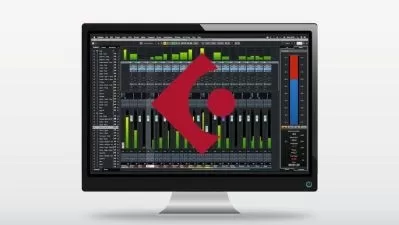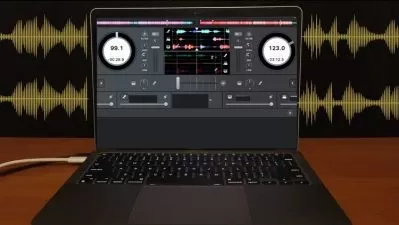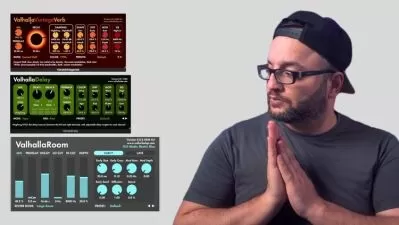About Music MixingLearn More
There are no club bangers or pop smash hits without music mixing and mastering. Mixing music is the next step beyond the recording process, and creates some of the catchiest atmospheric elements of your favorite tracks. Volume, dynamics, and panoramic positions all fall under the music mixing umbrella.
Sort by:
Sorting
The newest
Most visited
Course time
Subtitle
Frequently asked questions about Music Mixing
Music mixing is taking the different parts of a recorded piece of music and mixing them into a whole piece of music. Specifically, it is the art and science of combining multitrack recordings into a single final track, whether mono, stereo, or surround sound. A music mixer typically starts by adjusting the relative levels of each track, setting and even automating them so that the balance of the mix is optimized at all times. The process involves intense use of hardware and/or software gear such as compressors, reverbs, delays, equalizers, and other tools to create the desired sound. Many apply these effects to both single tracks and groups of tracks “bussed” together and treated as a single. Mixers control the “depth” of sound using volume, the “width” using the stereo field, and the “height” using frequencies. A mixing engineer typically uses a digital audio workstation (DAW) or a hardware mixing console.
The best digital audio workstation (DAW) is the one that works best for you. Today, there are many versatile and reliable workstations available, each with its own set of strengths. FL Studio is a popular choice and is great for making electronic and hip-hop music. Mac users will recognize the Garageband app that comes stock with their computers. The professional upgrade to this is Logic, Apple’s proprietary DAW that blends simplicity with full, high-end recording and mixing capabilities. Closest to Logic is Pro Tools, a similar DAW with a different user interface and slight differences in workflow. Steinberg’s Cubase DAW is another option and a go-to choice for film composition and scoring, with another version, Nuendo, optimized for video game scoring. Ableton Live is the best choice for any type of live electronic performance. It includes a suite of synthesizers and other plug-ins for versatile live performance.
A music mixer takes the tracks recorded by a recording engineer and arranges them, adds effects, and adjusts them in any way necessary to deliver a final track. A producer guides the project from start to finish. Even if the producer does not perform any of the parts, they make creative decisions, suggestions, and have full license to add or subtract elements as they see fit. In general, the producer is in charge of the bulk of decision-making and has the final say in a song’s mix. A mixing engineer generally has some degree of autonomy as well, but if the producer wants something to sound different in the end, the mixer will usually defer. The producer will work with the mixer to make sure the mixing process stays on course to deliver the intended and desired sound.







